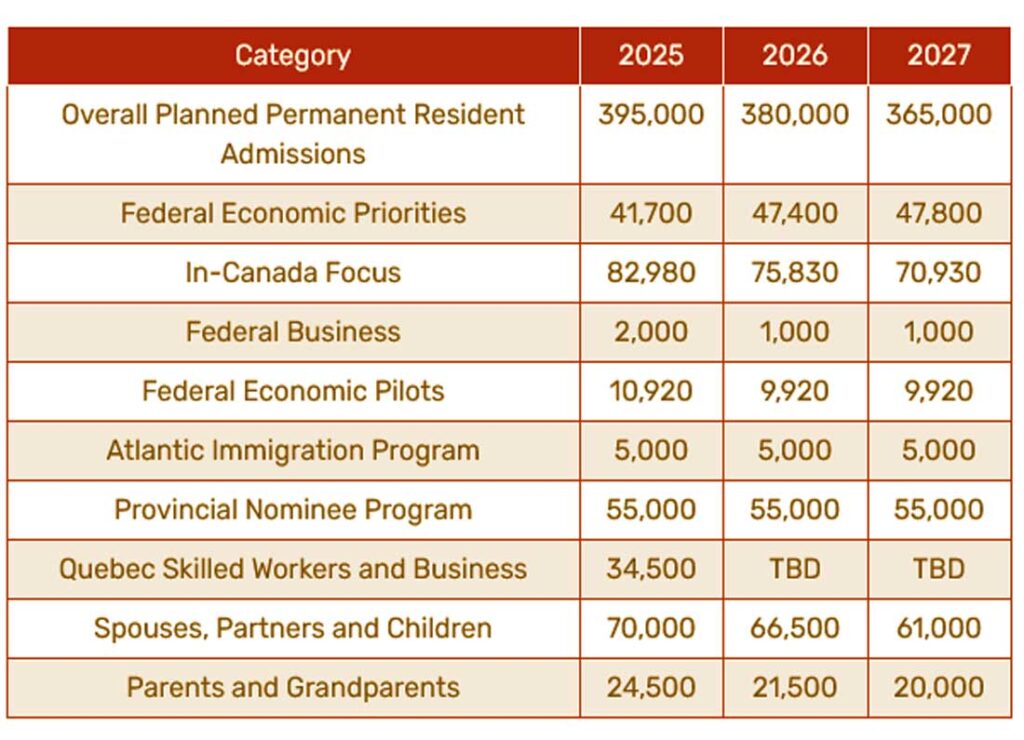would likely bring significant changes to both immigration policy and the economy. His approach, rooted in conservative values, presents both advantages and disadvantages that will shape the country’s future.
Impact on Immigration
Pierre Poilievre’s immigration policy tends to emphasize a controlled, merit-based approach. He has often expressed concerns about the current levels of immigration, suggesting that Canada’s immigration system should prioritize skilled workers, address the needs of the job market, and ensure that newcomers can contribute to the economy.
Advantages of Poilievre’s Immigration Policy
- Increased Focus on Skilled Workers: One of Poilievre’s primary goals is to bring in immigrants who can fill critical labor shortages, especially in sectors like technology, healthcare, and engineering. This could help bolster Canada’s workforce and reduce the strain on industries facing skill gaps.
- Economic Integration: Poilievre advocates for policies that ensure immigrants are well-integrated into the economy. By streamlining the immigration process for skilled workers, those who are admitted can more easily transition into Canadian society and contribute to economic growth.
- Supporting Regional Growth: By adjusting immigration policies to direct more people to provinces and regions experiencing labor shortages, the economic burden on major urban centers can be alleviated, encouraging balanced national development.
- Addressing Security Concerns: Poilievre has spoken about the need for stricter immigration vetting processes to ensure that security risks are minimized. This can improve public confidence in Canada’s immigration system.

Disadvantages of Poilievre’s Immigration Policy
- Reduced Immigration Levels: Poilievre has advocated for reducing overall immigration numbers, which could limit the diversity and talent that immigrants bring to Canada. Lower levels of immigration could lead to challenges in meeting Canada’s long-term economic needs.
- Challenges for Refugees and Family Reunification: Stricter immigration policies may make it more difficult for refugees and families to settle in Canada. Poilievre’s focus on merit-based immigration may leave behind those in dire need of humanitarian support.
- Public Perception of Exclusion: While prioritizing skilled workers, there is a risk that the policy may be perceived as exclusionary, potentially fostering divisiveness between various immigrant groups. This could undermine Canada’s reputation as a welcoming and inclusive nation.
Impact on the Economy
Pierre Poilievre’s approach to the economy focuses on reducing government intervention, lowering taxes, and encouraging private sector growth. His policies aim to restore fiscal responsibility and support long-term economic sustainability.
Advantages of Poilievre’s Economic Policies
- Lower Taxes: Poilievre has proposed tax cuts for businesses and individuals, which could stimulate economic growth by encouraging investment, increasing consumer spending, and enhancing business competitiveness. Lower corporate taxes could attract more businesses to Canada, potentially creating jobs and boosting economic output.
- Reduction in Government Spending: A key part of Poilievre’s platform is reducing government spending, particularly in areas he considers wasteful. This focus on fiscal restraint could lead to a more balanced federal budget, reducing Canada’s national debt and potentially lowering the cost of servicing it over time.
- Focus on Job Creation: By encouraging business investment and entrepreneurship, Poilievre’s policies could lead to greater job creation, especially in sectors like energy, technology, and manufacturing. His plans to ease regulations on businesses would provide more opportunities for innovation and expansion.
- Economic Resilience: Lowering taxes and reducing government involvement in the market may create a more flexible and resilient economy. This could help businesses adapt more quickly to changes in global markets, boosting Canada’s competitiveness internationally.
Disadvantages of Poilievre’s Economic Policies
- Potential for Increased Income Inequality: While tax cuts may benefit businesses and higher-income individuals, they could also lead to a widening gap between the wealthy and the rest of the population. Reductions in government spending might impact social services, which could hurt low-income Canadians and vulnerable groups.
- Possible Cuts to Essential Public Services: With Poilievre’s push to cut government spending, there may be reductions in funding for public services such as healthcare, education, and social welfare. These cuts could affect the quality of life for Canadians who rely on these services, especially those in lower-income brackets.
- Uncertain Long-Term Economic Stability: While tax cuts may stimulate short-term growth, there is concern that the long-term effects could undermine public services and infrastructure, potentially leading to economic instability. Without careful planning, Poilievre’s policies could result in a reduction in social benefits that many Canadians depend on.
- Environmental Impact: Some of Poilievre’s economic policies, such as supporting the energy sector and reducing environmental regulations, could lead to negative environmental consequences. This could alienate climate-conscious voters and put Canada’s long-term sustainability at risk.
Conclusion
A victory for Pierre Poilievre would undoubtedly reshape Canada’s immigration and economic landscape. His policies promise to prioritize skilled labor, reduce taxes, and create a business-friendly environment, but there are potential trade-offs, including reduced immigration levels and cuts to social programs. While these changes could lead to economic growth and increased job creation, they also carry risks related to income inequality, public service reductions, and environmental challenges.
Ultimately, the success of Poilievre’s policies would depend on their implementation and the broader global economic environment. Canada’s future under his leadership would likely see a balance between embracing market-driven solutions and managing the social implications of those changes.
As Canada’s political landscape continues to evolve, the potential victory of Pierre Poilievre, leader of the Conservative Party of Canada,
Stet clita kasd gubergren, no sea takimata sanctus est Lorem ipsum dolor sit amet. no sea takimata sanctus est Lorem ipsum dolor sit amet. no sea takimata sanctus est Lorem ipsum dolor sit amet. sed diam voluptua.
At vero eos et accusam et justo duo dolores et ea rebum. Lorem ipsum dolor sit amet, no sea takimata sanctus est Lorem ipsum dolor sit amet. Stet clita kasd gubergren, no sea takimata sanctus est Lorem ipsum dolor sit amet. no sea takimata sanctus est Lorem ipsum dolor sit amet. no sea takimata sanctus est Lorem ipsum dolor sit amet. sed diam voluptua.
” The pub chip shop knees up the BBC it’s your round the full monty butty excuse my french bugger mate “
John Wright
Stet clita kasd gubergren, no sea takimata sanctus est Lorem ipsum dolor sit amet. no sea takimata sanctus est Lorem ipsum dolor sit amet. no sea takimata sanctus est Lorem ipsum dolor sit amet. sed diam voluptua.
- Light comes from all sorts of randomness void.
- It’s a blessing, but also a terrible defect sensational.
- Smart phones are a massive energy drain.
- Buy SmartMag for your successful site.
Clita kasd gubergren, no sea takimata sanctus est Lorem ipsum dolor sit amet. no sea takimata sanctus est Lorem ipsum dolor sit amet. no sea takimata sanctus est Lorem ipsum dolor sit amet. sed diam voluptua.











Leave a Reply